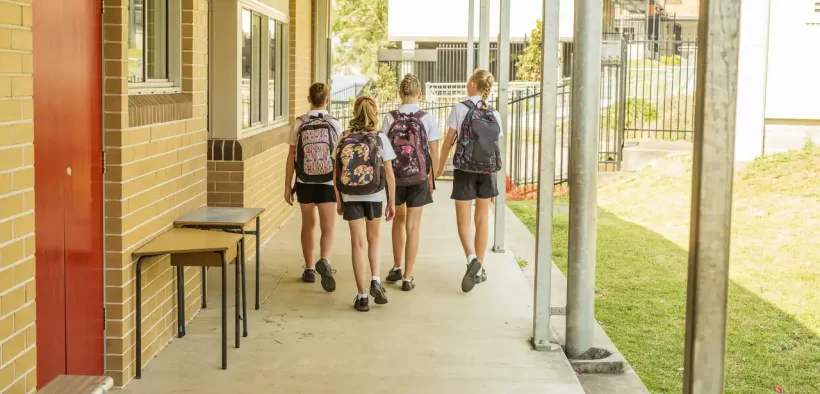“This is all about driving educational outcomes so our kids get the best start in life,” he said.
“We know that just one child’s poor behaviour in the classroom can lead to a negative impact on our children’s learning.”
The adviser will reportedly use the latest evidence-based practices to develop management guidelines and advise parents and carers on the most effective ways to back up behavioural approaches taken at school.
Mr Perrottet also announced the government will more than double the number of behaviour specialists in NSW public schools from 70 to 200.
Focus on root causes
Cleo Westhorpe is one of the founders of Pivot PL, a company that provides schools with data aimed at improving teaching practice and student well-being and which earlier this year released findings from a survey on the well-being of school students. She said “behavioural issues” was a “convenient umbrella term.”
“Once you start to peel back the layers, it could be a range of issues, it could be that they might be struggling to read, for example, and therefore behaviour is is a way of masking what might be truly happening,” she said.
“It might be anxiety, it might be a lack of engagement and a lack of academic challenge, so I think behaviour is a convenient umbrella term, but the actual root cause of what is driving those behaviours, which might be disruptive is what needs to be addressed.”
Cleo Westhorpe, one of the founders of Pivot PL. Source: Supplied
Pivot Pl’s survey, which involved 38 Australian schools, found 11 per cent of students indicated they were either ”struggling” or “not so good.”
It also revealed many students didn’t feel they had a trusted adult at school they could turn to and weren’t sure how to ask for help and highlighted a lack of sleep as an issue affecting many students.
Ms Westhorpe said learning difficulties, disabilities and mental health all needed to be taken into account.
She said any disruption to learning and routine would impact some students more than others.
“It’s highlighted how we really do need a very individualised approach for students, and they’ll all respond to different things at different times.”
Teacher shortage not helping
NSW Teachers Federation President Angelo Gavrielatos said while the COVID-19 pandemic may have increased the behavioural issues teachers were dealing with, they were only being made worse by the shortage of teachers in classrooms across Australia.
“As a result of this crisis, every single day hundreds and hundreds of classes are either in playgrounds, schools or libraries, under minimal supervision, or classes are split and merged,” he said.
“This is interrupting the learning of thousands of students every single day.
“The contemporary classroom is complex enough as it is given student need continues to grow.”
Mr Gavrielatos said staff shortages were also directly impacting the ability of NSW students to seek support when required.
“There are 106 vacant school counsellor positions,” he said.
“The school counsellor to student ratio is one to 700, what we need from governments is not denial and headline-grabbing stats, what we need from government is action on the teacher shortage and the shortage of school counsellors.”
SBS With additional reporting by AAP.













